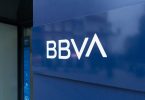On 5 November 2020, Santander announced its collaboration with nine other leading Spanish firms to create a blockchain-based digital identity verification solution. The project, named Dalion, includes financial institutions such as CaixaBank, Bankia and BME, insurance companies MAPFRE and Línea Directa, energy firm Repsol, and the Alastria consortium. Dalion began in October 2019 and is now beyond conceptualization. It begins its second phase this month, with a plan to launch the solution in May 2021.
Dalion currently runs on Quorum, the permissioned version of Ethereum and is hosted on Alastria’s blockchain network. The solution is based on ID_Alastria, the consortium’s digital identity model inspired by the idea of Self-Sovereign Identity (SSI). Dalion works by having credential issuers certify and validate the digital identity of the users. Users will be able to have control over their personal data, which will be accessible to them at any time through a mobile app. They will be able to decide with whom they wish to share their data.
Blockchain technology enhances the authenticity of the information in a secure and reliable manner. Compared to other SSI solutions, a little more is stored on the blockchain. While any private data shared is not stored on the blockchain, the fact of a credential issuance or data sharing is stored as a hash or a fingerprint. Although it claims the hash cannot be linked to individuals.
Here’s a brief example of how it would work for a hypothetical driver’s license. The licensing authority would provide a driver’s license to an individual, which would be shared privately and stored in the user’s mobile app. The issuer would store a hash of the credential issuance on the blockchain, and the individual would store a different hash. The two hashes cannot be associated without having the private credential data. But if the user shares the driving license, the blockchain hash can be checked by the recipient.
The firms envision this digital identity solution for various services such as when hiring a car or taking out insurance and loans. But they also recognize the challenge to ensure their solution has the same legal effect as existing data validation and authentication services. A key benefit is it removes the number of forms that a user has to complete, reducing customer friction for the corporates.
The model is designed to conform to European regulations, the transactions, therefore, being legally valid. Alastria plans to launch this model as one of its basic blockchain applications on its platform. Santander claims ID_Alastria has been presented to the Spanish Standardization Association and other European standardization bodies such as CEN/CENELEC. It also claims the model has been the inspiration of ESSIF, the European Commission’s (EC) self-sovereign identity framework.
Alastria
Launched in 2017, the Alastria consortium is a non-profit promoting the digital economy through blockchain and decentralized ledger technology (DLT) across all sectors. Its members include some of Spain’s biggest companies, such as the Dalian members, Telefonica, Iberdrola as well as Spanish subsidiaries of international firms, including Accenture and AXA. It also includes public sector institutions, startups, SMEs, and universities. The consortium currently boasts a total of 575 members across various sectors, from education, tourism, and retail, to energy, insurance, and venture builders.






